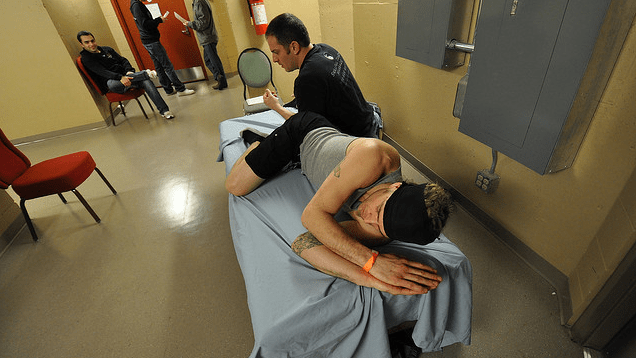Should you spring for a stint in the post-marathon massage tent? Get a regular rubdown to help your recovery as you train? Research shows that sports massage doesn’t always do what you think it does — but it may still help you recover from a tough workout.
Most importantly: Sports massage doesn’t flush lactic acid, or other “toxins,” from your muscles. Lactic acid is produced during exercise, and you might associate it with a burning feeling during hard work, but it’s not a problem, isn’t responsible for next-day soreness, and doesn’t need help to be removed from the muscles.
Massage does help to relax muscles, though, which can help to relieve tight muscles. The same action can break up adhesions, a type of scar tissue that sometimes forms in muscle.
Where massage shines, though, is in promoting recovery. Studies testing massage as a recovery technique are inconsistent. Sometimes it helps, sometimes it doesn’t, and the differences may come from the different types and timing of massage that the studies use. Still, recent studies have shown that massage, in humans and in rabbits, improves the ability of muscles to repair themselves after a workout. If you can’t afford regular sports massage from a professional, a good strategy may be self-massage with tennis balls and foam rollers.
The Pros and Cons of Massages for Runners [Runner’s World]
Photo by Peter Gordon.

Comments